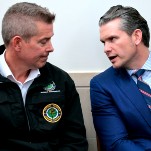Are Woman Choosing Romance Over Careers In Science And Tech?
LatestThe lack of women in science, technology, engineering, and math is often lamented, but it’s still unclear why a gender gap exists in those fields. Now researchers say the problem might be that when a woman’s thoughts turn to romance, they also turn away from the sciences.
In series of studies partially funded by the National Science Foundation, researchers set out to find why women are underrepresented in these fields, which are abbreviated as STEM. According to Futurity, the research published in Personality and Social Psychology Bulletin found that when women concentrate on romantic goals, whether due to environment or personal choice, they demonstrate less interest in STEM and more interest in fields traditionally thought of as feminine, like arts, languages, and English. Yet, the same is not true for men.
In several studies of more than 350 subjects, men and women were exposed to images or conversations that prompted them to think about different types of goals. From Futurity:
-

-

-

-

-

-

-

-

-

-

-

-

-

-

-

-

-

-

-

-

-

-

-

-

-

-

-

-

-

-

-

-

-

-

-

-

-

-

-

-








































